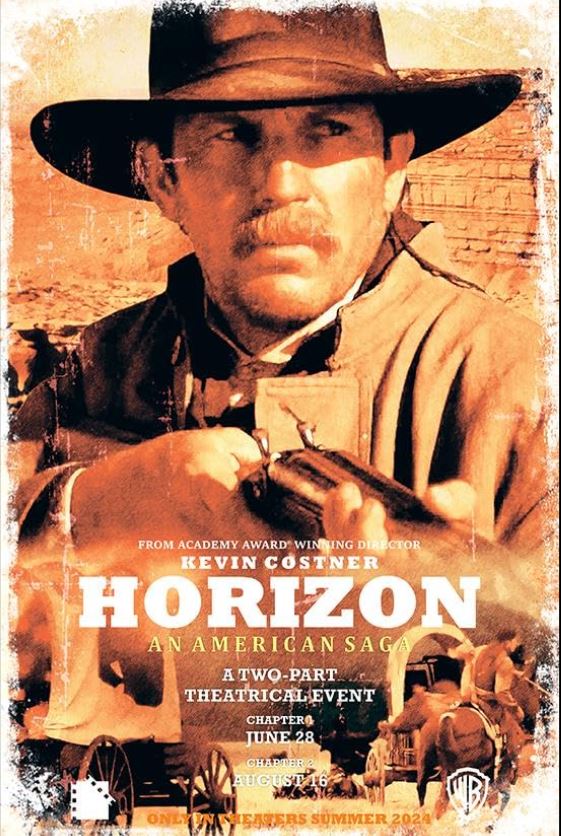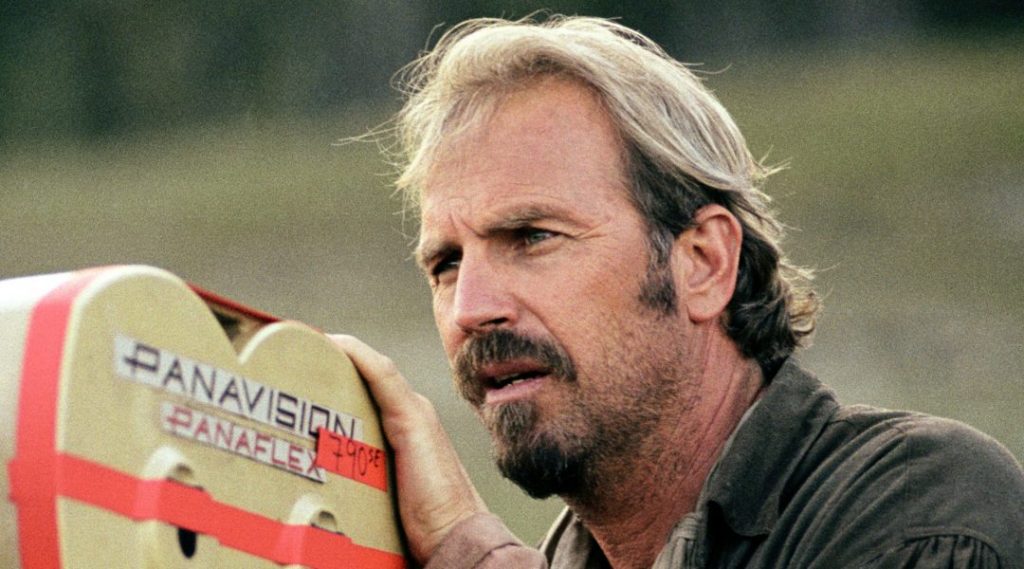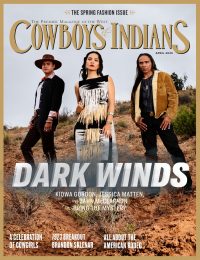The first two parts of his epic Western drama will be released this summer.
Kevin Costner has a brand new Western on the horizon — two of them, really — and he’s eager to share an early look at his labor of love.
That’s why the star and Oscar-winning director of Dances with Wolves participated in a virtual press conference last week to promote the first official trailer for his Horizon: An American Saga, an epic Western drama that will be released theatrically in two parts, June 28 and Aug. 16. He’s banking on audiences being drawn to the box-office by a three-minute preview of his long-in-development passion project — and hoping that he can raise financing to continue the story in two more films in the not-so-distant future.
Horizon is Costner’s fourth directorial effort, after Dances with Wolves (1990), The Postman (1997) and Open Range (2003). And it’s by far his most ambitious project — as lead actor as well as director — to date. It’s a narrative spanning 15 years both before and after the Civil War, focused on the expansion and settlement of the American West.
“America’s expansion into the West was one that was fraught with peril and intrigue — from the natural elements to the interactions with the indigenous peoples who lived on the land, and the determination and at many times ruthlessness of those who sought to settle it,” Costner told the showbiz website Deadline. “Horizon tells the story of that journey in an honest and forthcoming way, highlighting the points of view and consequences of the characters’ life and death decisions.”
What follows are highlights culled from the Academy Award winner’s (Best Picture and Best Director) comments during the press conference, edited for brevity and clarity.
Why all the hoopla for the release of a trailer?
Well, trailers have always been kind of a favorite part [of moviegoing] for me, even as a boy going to the movies. You’re obviously there to see the movie you want, but isn’t it kind of cool when you see what’s coming? Because being at the theater was always so much of our life, and trailers could excite us. So I’ve never lost faith in what trailers can be, and what they mean to people.
And with that in mind, I did my very best to expose what’s going to be a four-part saga, to just introduce [audiences] to what’s happening, where it’s going, where we’ve set this movie. Can they in a sense feel themselves in this movie? Because that’s what I want people to feel in the dark — that suddenly they just absorb themselves, take the ride. We all know what happens when the lights go out — either something good, something average, or something great. So I tried to find the moments for a three-minute trailer to try to give people a feel for where I might be taking them.
What is the meaning of the title?
This is going to startle everybody. It was originally called Sidewinder. See, when I started, it was at a point in my career when it seemed like people were copying some of the movies I was doing. When it was Robin Hood, there’s a couple other Robin Hoods. Or Wyatt Earp, and suddenly there’s a couple Wyatt Earps. And I literally had commissioned this Western and I thought, “I just don't want anybody stepping into whatever I’m trying to do.” So I called it Horizon and said it was written by my son, just to disguise it when it went to the Writers Guild. I just didn’t want to be followed in 1988. Of course, here it is in 2024, and I’m finally making this movie.
So the name Horizon was just by default, in a way. But the longer I started to think about it, the more I began to appreciate that in dreams about going West, they’re always about out there [on the horizon]. And when you realize the country’s bigger and farther than anyone ever dreamed, it is about the horizon, because everybody is looking for something. Even today, in the relationships and what’s going on at work, they’re looking for room, they're looking for fresh air. And our 200-year march across this country was no different.

What drove you to turn your Horizon dreams into reality?
Well, it’s hard to fall out of love. I don’t do that. And I think things that have a classic feel, they don’t fall out of touch, either. I think they exist in any decade. That’s the opportunity we have in cinema, to make something that lasts past its opening weekend. I’ve never banked on opening weekends. I banked on people wanting to revisit something, wanting to tell something about it. I think it’s kind of funny — there’s a lot of people out there that know I’m a little bit of a hardhead or something, I'm not sure what it is. But when no one wanted to make the first one, I got the bright idea to make a total of four movies. [Laughs] So I don’t know what's wrong with me.
But I wanted to step away from what we usually see in Westerns, where there’s a town, it’s already there. No one knows how it came to be, but it’s some mushroom that popped up. There’s a guy who comes in off the horizon, if you will. We don’t know much about him, except that he has some skills that he’d like to put behind him, and this town ends up needing those desperately. That’s a bit of a formula for the West. And when it’s done right, we never forget it. But too often, it’s just a convenience for a hero guy to knock down a dumb guy.
We have a lot of Westerns that aren’t good because they get too simplified. And Westerns are in fact complicated, because this isn’t Disneyland. These were real lives — people just making their way, women just trying to keep their families clean and fed, and basically working themselves to death. Women’s lives were short. All they did was work. And so I’m drawn to that. I mean, I’m always going to get to my gunfight, but I’m also drawn to the little things that people had to endure.
So to me, it was worth holding on to, because it’s a story that I just felt like I wanted to tell. It just grew and it grew and it grew, until suddenly I realized that I had to make it. And I had to look to myself financially to do this. [Laughs] Not the smartest thing, but I count on people, and I count on the movie speaking louder than anything I can say. And so with that in mind, I just shoved off West myself. I just left and I went out to make this movie in Utah.

How will you deal with those aspects of westward expansion that might trouble contemporary audiences?
I think it’s really a mistake sometimes to judge other people by how they had to perform, or act, in another century. We kind of apply our own sensibilities when we live in a world today where if we’re offended, we have to get a lawyer or agent or publicity person, somebody to arbitrate our problems. Back then, you had to arbitrate your problems by yourself, which was terribly dramatic, especially if you were dealing with a sociopath. I think when you think about the West, you have to understand we were coming out of that terrible Civil War, and if anyone believes in post-traumatic stress of people who are injured or whatever — remember, there’s only about 30 million people in America at the time. That war went on for four years. We lost 56,000 men in Vietnam. We lost 600,000 in the Civil War.
People came West sometimes with a lot of hope, bringing their families. Other people came West because they were damaged. Other people came West because they were running away from something. And nobody knew who each other was. “Stranger” was the boogeyman. When you said you’re a stranger 120 years ago, people were afraid of you, because they didn’t know if that was really your name, or what you’d really done. And people caught on very quick in the West that if they were strong enough, like the trailer says, or if they were mean enough, they could hold onto something, they could take it away from you.
And when you can create that architecture in a movie where anything is possible, some people get lucky and some people are not lucky. And the reason why people kept going West? Because they would look down at these graves that followed the trail West, and when their wife said, “Why are we going out here?” — the man simply said, “We're going to be luckier than them.” That's how this country got settled. And the American Native Indians were crushed under this movement. They didn't stand a chance.
Why were you determined to tell the story of Horizon in a movie — or four movies — instead of a miniseries?
I’m a storyteller, and I like to see it 40 feet across, 20 feet high. I love my moment in the dark when anything’s possible. When we used to have the curtain [in movie houses], I always thought when the curtain was drawn, “Oh my God, this could be great.” As a kid, sometimes it was, and sometimes it wasn’t. And as an adult, sometimes it was and sometimes it wasn’t. And I yearn for the curtain again. But as a storyteller, I want to go to places that could thrill you, expose you to things, and challenge you to wonder: Would you have been tough enough to make it then? And you have to create a movie that has a level of authenticity that you actually can parallel your life with. And look at the people — they were just trying to scratch out a living. I just wanted to bring [this story to the screen] because that’s my chosen profession, and I don’t have a tendency to follow trends. It’s taken me a long time. I don’t make three-minute movies. But I did the best I could with this trailer.
As the anticipation builds for Kevin Costner's latest venture into the realm of Western cinema with "Horizon: An American Saga," audiences worldwide eagerly await the unveiling of this epic narrative. This American West saga features Kevin Costner, Sienna Miller, Sam Worthington, Jena Malone, Abbey Lee, Jamie Campbell Bower, and many other talented actors.
With a narrative that spans the tumultuous era before and post Civil War in the United States, Costner promises a gripping tale that delves into the complexities of America's expansion into the West. From the perils of nature to the interactions with indigenous peoples, "Horizon" offers a raw and honest portrayal of this pivotal period in history. As Costner embarks on his most ambitious project yet, both as lead actor and director, he invites viewers to join him on this emotional journey of discovery and consequence. With the release of the first official trailer sparking excitement, Costner's vision for "Horizon" stands poised to captivate audiences and cement his legacy in the Western genre. ("Horizon: An American Saga" is being distributed by Warner Bros. pictures)












